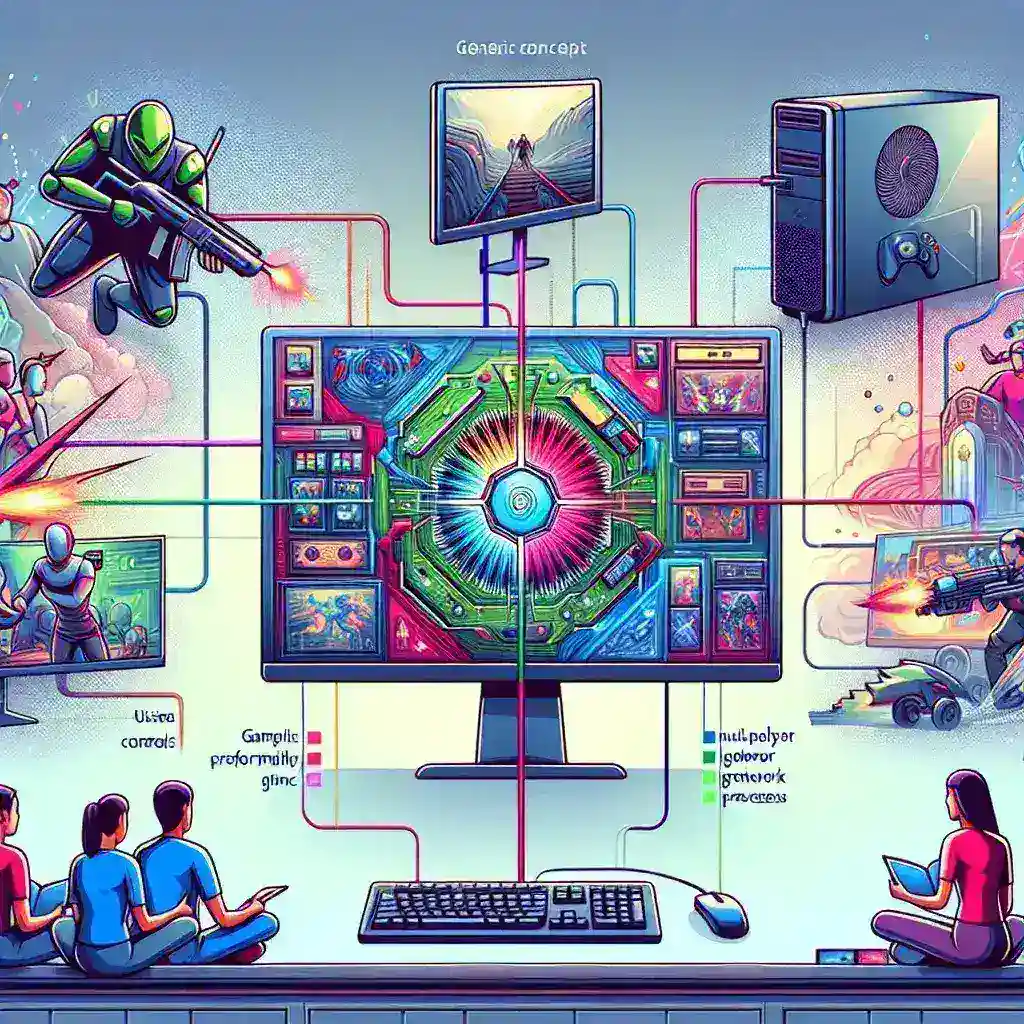
With the rapid advancement in gaming hardware and software, gaming-specific operating systems (OS) have emerged as a crucial component in enhancing gaming experiences. These operating systems are designed primarily to optimize the performance of gaming applications, provide a seamless user interface, and offer specialized features tailored for gamers. But what exactly is the role of these gaming-specific OS, and how do they differ from traditional operating systems?
The Concept of Gaming-Specific Operating Systems
A gaming-specific operating system is an OS tailored to prioritize gaming needs over general computing tasks. Unlike traditional operating systems like Windows or macOS, which aim to cater to a broad audience with diverse needs, a gaming-specific OS focuses on providing the best possible environment for gaming. Key advantages include:
- Optimized resource allocation for improved gaming performance.
- Reduced latency and enhanced responsiveness.
- Customized user interfaces designed for gaming.
- Specialized features such as game libraries, social integration, and support for gaming hardware.
Key Features of Gaming-Specific Operating Systems
Resource Optimization
One of the most critical roles of a gaming-specific OS is resource optimization. The OS is fine-tuned to allocate system resources efficiently, ensuring that the maximum amount of processing power, memory, and graphical resources are available for running games. This optimization reduces the risk of hardware bottlenecks, leading to smoother and more immersive gaming experiences.
Reduced System Overhead
Traditional operating systems often have numerous background processes and services running, consuming valuable system resources. Gaming-specific OS minimize these overhead processes, enabling better performance for gaming applications. This reduction in overhead can result in lower system latency and higher frame rates, providing an advantage in fast-paced games.
Specialized Gaming Features
Gaming-specific operating systems often come with a host of specialized features uniquely catering to gamers. These can include:
- Game Libraries: Centralized repositories for managing and accessing game titles easily.
- Social Integration: Built-in social features for chatting with friends, sharing game updates, and streaming gameplay.
- Enhanced Compatibility: Support for a broad range of gaming peripherals, such as controllers, VR headsets, and specialized gaming keyboards/mice.
- Customization Options: Extensive customization options for both the system UI and gaming settings.
Popular Gaming-Specific Operating Systems
Several gaming-specific operating systems have made a name for themselves in the gaming community. Here’s a brief overview of some of the most notable ones:
| Operating System | Platform | Key Features |
|---|---|---|
| SteamOS | Linux-based | Seamless integration with the Steam platform, optimized for Steam games, and Big Picture mode. |
| Windows 10/11 Gaming Mode | Windows-based | Gaming Mode to enhance performance, DirectX 12 support, Xbox app integration. |
| Console OS (e.g., PlayStation OS, Xbox OS) | Proprietary | Optimized for specific hardware, exclusive game titles, and social features. |
| Android Gaming OS (e.g., Tencent Gaming Buddy) | Android-based | Optimized for mobile games, emulator functionality for PC gaming, and cross-platform play support. |
Benefits of Using a Gaming-Specific Operating System
Enhanced Gaming Performance
A gaming-specific operating system offers enhanced performance tailored exclusively for gaming needs. This optimization ensures that gamers can enjoy higher frame rates, reduced latency, and a more responsive gaming environment.
Improved User Experience
The tailored user interfaces and specialized features of gaming-specific OS can significantly improve the overall user experience. Gamers can access their favorite titles, communicate with friends, and manage their gaming setup more efficiently and effectively.
Access to Exclusive Features
Many gaming-specific operating systems offer exclusive features that aren’t available on traditional OS. These can include exclusive game titles, enhanced compatibility with gaming peripherals, and built-in social and streaming features.
Better Stability and Security
Gaming-specific OS often provide a more stable and secure environment for gaming by limiting unnecessary processes and protecting against common threats. This can lead to fewer crashes and a more reliable gaming experience.
Challenges and Considerations
Compatibility Issues
One of the primary challenges with gaming-specific operating systems is compatibility. While these OS are optimized for gaming, they may have limited support for non-gaming applications, making them less versatile than traditional operating systems.
Hardware Requirements
Some gaming-specific OS may have stringent hardware requirements, necessitating high-end components to run efficiently. This can make it difficult for users with older or less powerful hardware to benefit from the advantages these OS offer.
Learning Curve
Switching to a gaming-specific operating system can have a learning curve, especially for users accustomed to traditional OS interfaces. Adapting to new features, settings, and user interfaces can take time and effort.
Conclusion
Gaming-specific operating systems play a vital role in enhancing the gaming experience by offering optimized performance, specialized features, and a tailored user interface. While there are challenges and considerations to keep in mind, the benefits these OS provide make them an attractive option for dedicated gamers. As technology continues to evolve, gaming-specific operating systems are likely to become even more sophisticated, providing an ever-improving platform for gamers worldwide.
